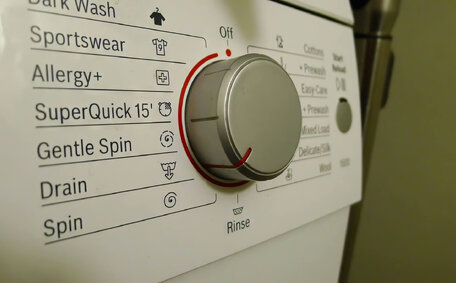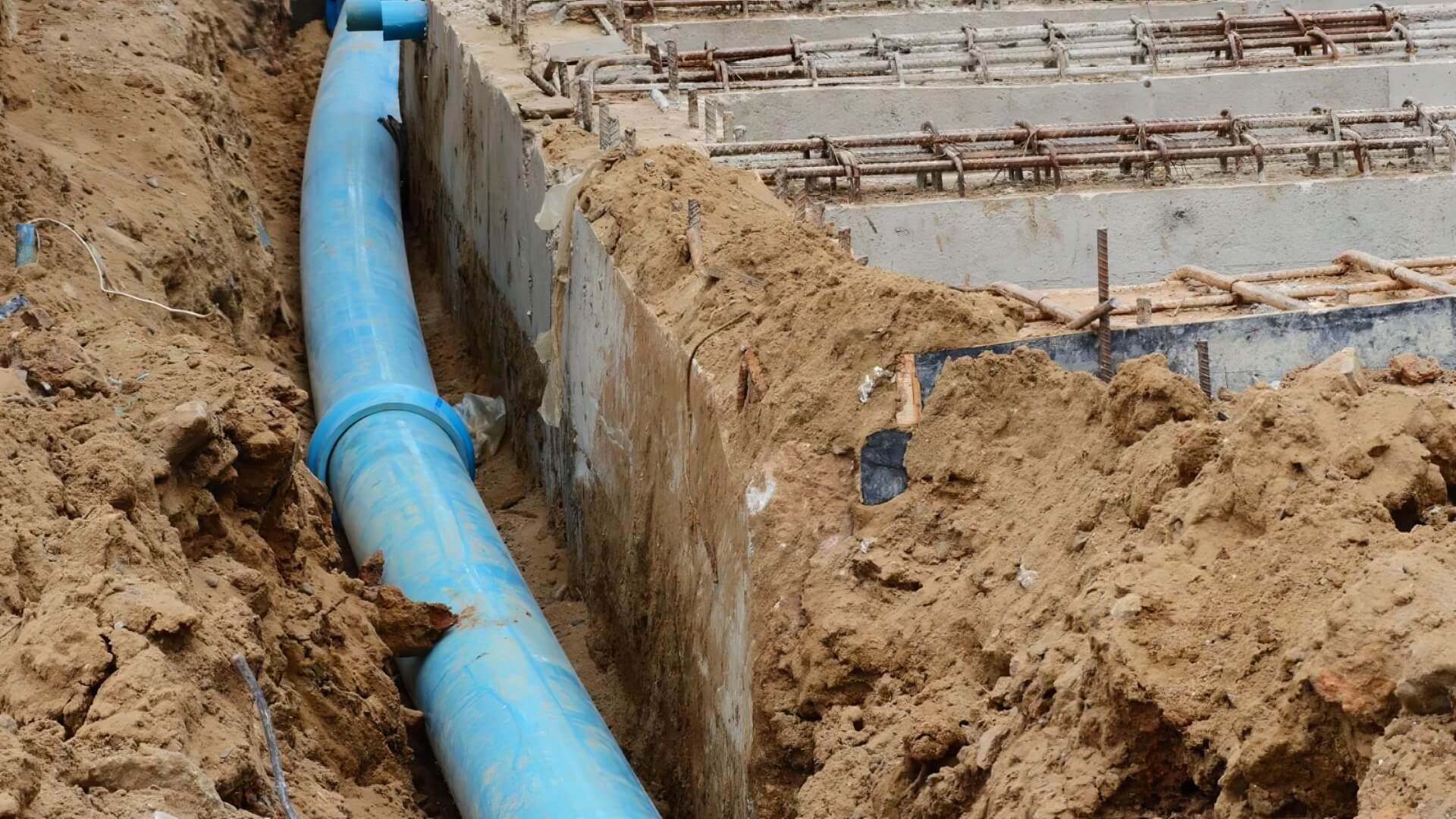Understanding Blocked Drains: An Introduction
Blocked drains regularly occur in homes and businesses when various materials clog pipes, restricting water flow. Promptly addressing these blockages is critical to prevent burst pipes, sewer backups, and costly water damage.
Various types of drain blockages include:
- Sink drains - Often clogged by food scraps, grease, hair, leading to soap scum buildup.
- Your toilet drains - Often blocked by items inappropriately flushed down toilet, like excess toilet paper, feminine products, and toys.
- Main sewer lines - Root intrusion, collapsed pipes, and buildup cause major backups.
Blockages, particularly those affecting sewer lines, sinks, and toilets, can escalate into major issues that demand immediate attention. Otherwise, it’s crucial to contact emergency services, as a sewer blockage can lead to water backing up into your home, flooding bathrooms and causing unsanitary conditions. Additionally, the clog can cause water pressure to build up, risking pipe bursts.
Blocked drains often result from:
- Depositing materials that should not be washed down the drain, like fats, oils, grease, and non-flushable items.
- Tree roots penetrating exterior sewer pipes.
- Hair, food scraps, and soap scum accumulation in your pipes.
- Ageing or damaged plumbing can significantly contribute to clogs and can become major issues if overlooked.
Using a qualified plumber to clear significant drain blockages is advisable, as they possess the necessary tools and expertise to unclog drains, make repairs and restore flow, thereby preventing damage and minimising health risks.
Health and Safety Risks: Why Acting Quickly Matters
Neglecting serious plumbing issues like blockages poses grave health and safety risks. A blocked sewer drain can cause sewage and contaminated water to back up into premises, posing a dire situation. This backflow of bacteria-laden sewage water creates major contamination hazards and unsanitary conditions that endanger residents and workers.
Sewage backups releasing harmful pathogens, bacteria, and viruses into your sink and other drainage areas can be highly problematic. Contact with contaminated water can cause gastrointestinal illnesses like nausea, vomiting, diarrhoea, and other infections. The floodwaters can also present hazards like potential gas leaks, which might inflict damage upon your property with electrical dangers and slippery surfaces.
Consider the risk of pipes bursting from increased pressure in unaddressed blockages when assessing the dangers of a blocked drain. Burst pipes can damage your property on a massive scale and spur mould growth throughout structures. Flooding from burst pipes allows mould spores to spread and germinate, creating respiratory hazards from mould exposure.
Prompt action to clear blockages mitigates contamination and water damage risks. Addressing major blockages in all your drains protects residents and workers from these health and safety risks.
Calling an emergency plumber promptly can effectively resolve a clogged drain, preventing sewage backflow or pipe rupture.
Signs that Immediate Attention is Needed
There are several signs blocked drain that suggest plumbing issues within your system needing urgent attention:
- Backed-up toilets - Persistent slow drainage or high water levels in sinks, tubs, and toilets indicate a blocked drain.
- Gurgling sounds - Loud gurgling noises coming from drains when water is flowing means there is likely a partial blockage.
- Sewage odours - Foul smells from sinks often signal sewer gas backflow due to a clogged main line.
- Lower water pressure - A decrease in water flow from faucets, including issues with hot water systems, can suggest a blockage in the main sewer line.
- Notice water leaking - Water pooling around pipes or wet spots on walls/ceilings may indicate a burst pipe from water pressure buildup.
- Toilet issues - Constantly clogged toilets or overflowing water with flushing hints at a blockage in your main drain line.
Residents observing these signs should promptly contact a plumber to prevent escalating plumbing problems. Prompt arrival of a plumber is essential to efficiently clear blockages and restore proper water flow. Quick action, including getting a professional team on-site, can contain flooding and prevent contamination hazards from sewage backups.
Being aware of your regular drain maintenance routines is key to preventing the onset of serious clogs.
Regularly clearing hair, grease and monitoring kitchen sink drains, as well as drainage in other areas, ensures free removal of debris and helps minimise the most common types of buildup. Engaging professional help when warning signs appear is essential to prevent health risks and property damage from burst pipes and sewer backups.
Putting a Stop to Further Damage
When faced with severe blockage signs, swift intervention is crucial to prevent further damage and costly repairs. When comes to mitigating damage, here are some steps you can take While awaiting a plumber:
- Turn off your water supply - Locate the main valve and turn off the water to the entire home or building. This stops additional water from entering the blocked system.
- Avoid using any water - Avoid using water as this may exacerbate leaks by running water down drains, flushing toilets, or using appliances. This prevents exacerbating the blockage.
- Check for leaks - Be vigilant for signs of stagnant water pooling around plumbing fixtures or wet spots on walls/ceilings indicating a leak. Place buckets to catch any drips, turning off water from worsening the situation.
- Clear gutters and downpipes - Make sure rain gutters and downpipes are clear of debris so rainwater can flow freely. This prevents overloading the blocked drains.
- Move valuables to higher ground to reduce the risk of water damage from a burst pipe.
Taking these steps helps stabilise the situation and minimises additional flooding or leaks, ensuring help arrives as soon as possible. Our experienced team can diagnose the blockage, ensuring your drainage system functions smoothly.
When facing signs of a serious blockage, taking quick action helps prevent further damage and costly ire home or building.
When to Call a Professional Plumber
Engaging a blocked drain plumber is imperative when confronting serious blockages or drain disruptions that require specialised equipment. For homeowners and businesses in St Marys, enter your details below to contact the emergency-ready St Marys Plumbing, a reputable company, for the following plumbing emergencies:
- Significant clogs in your sewer line affecting the main drain and all fixtures in a building.
- Major sink, blocked toilet, or appliance drain backups resulting in flooding.
- Sewage odours, water pooling near drains, or overflowing fixtures signalling a large blockage.
- Reduced water pressure, leaks, or burst pipes resulting from drainage problems.
- Clogged drains that standard drain cleaners and DIY methods cannot clear.
Professional plumbers use high-powered tools to clear tough blockages, assess damage, and perform crucial drain repairs. Services like pipe relining can permanently repair damaged sewer pipes that are prone to clogging.
In case of emergencies, St Marys Plumbing provides a 24/7 response to quickly contain urgent issues. Given their proficiency, we recommend them for tasks like snaking drains, pumping out backed-up sewage, and making repairs to restore proper drainage. Taking immediate action, which we would highly recommend and often results in a great job, helps minimise property damage, contamination hazards, and costly repairs.
While minor sink or toilet clogs may be DIY-able, A professional plumber’s expertise is often needed for serious sewer line or appliance drain blockages. If your daily methods to clear a clog fail, reach out to St Marys Plumbing at 1300 349 338 or jobs@stmarysplumbingservices.com.au for urgent assistance.
Preventing Future Blockages
Preventing future drain blockages is essential for avoiding plumbing emergencies and costly repairs. Here are some tips to address causes blocked and maintain clear drains for St Marys residents:
- Use drain screens over sinks, tubs, and showers to catch hair and prevent debris buildup.
- Limit grease - Avoid disposing of fats, oils, and grease in sinks to avert buildup.
- Regularly use enzyme cleaners such as baking soda and vinegar to degrade organic matter and avert pipe blockages.
- Avoid harsh chemicals - Don’t use caustic drain cleaners as they can damage pipes over time.
- Inspect outdoor drains - Ensure gutter downpipes and street drains can remain free of leaves and silt near your property.
- Call a plumber - Regular inspections can have drains professionally inspected and cleared annually to remove any stubborn blockages.
Practising smart waste disposal habits to address causes blocked drains, such as not flushing items down the toilet, can significantly reduce the risk of a plumbing emergency. Proper garbage disposal use can do wonders in avoiding jams. Additionally, fix any leaky plumbing fixtures as water leaks contribute to mineral deposits in drains.
Investing in professional drain cleaning and regular maintenance is wise to prevent severe clogs. Contact your local plumbing services, St Marys Plumbing at 1300 349 338, for professional drain inspections and cleaning when needed.






